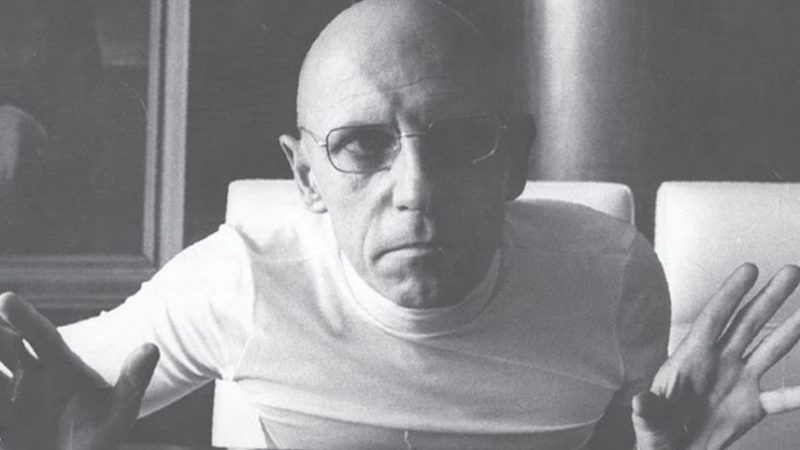Concerned Leftists Rediscover Michel Foucault Might Not Have Been As Anti-Market as They'd Like

Jacobin magazine readers discover something Nick Gillespie was telling you here at Reason at least as long ago as 2010: that lefty intellectual hero Michel Foucault late in life found himself attracted to aspects of the ideas of free-market thinkers such as Mises and Hayek, or, as the lefties prefer to pigeonhole them, "neoliberals."
Excerpts from an interview with Daniel Zamora, a writer on Foucault who "exposed" that their hero might have had a soft spot for the liberating powers of free market:
I wanted to clearly break with the far too consensual image of Foucault as being in total opposition to neoliberalism at the end of his life. From that point of view, I think the traditional interpretations of his late works are erroneous, or at least evade part of the issue. He's become sort of an untouchable figure within part of the radical left….
Foucault was highly attracted to economic liberalism: he saw in it the possibility of a form of governmentality that was much less normative and authoritarian than the socialist and communist left, which he saw as totally obsolete. He especially saw in neoliberalism a "much less bureaucratic" and "much less disciplinarian" form of politics than that offered by the postwar welfare state. He seemed to imagine a neoliberalism that wouldn't project its anthropological models on the individual, that would offer individuals greater autonomy vis-à-vis the state….
Foucault was one of the first to really take the neoliberal texts seriously and to read them rigorously. Before him, those intellectual products were generally dismissed, perceived as simple propaganda.
"One of the first" if you refused to read anything but people you consider politically sympatico, I guess. Foucault saw something in "neoliberalism" that anyone who pretends to care about human liberty, possibility, or dignity should respect. And Zamora understands this is a problem for the left, their willful ignorance of their imagined intellectual opponents:
Sequestered in the usual sectarianism of the academic world, no stimulating reading had existed that took into consideration the arguments of Friedrich Hayek, Gary Becker, or Milton Friedman….
The intellectual left…has often remained trapped in a "school" attitude, refusing a priori to consider or debate ideas and traditions that start from different premises than its own. It's a very damaging attitude. One finds oneself dealing with people who've practically never read the intellectual founding fathers of the political ideology they're supposedly attacking! Their knowledge is often limited to a few reductive commonplaces.
The interview goes on with Zamora noting that Foucault dared question the totalizing social security system ("To [Foucault's] mind, the mechanisms of social assistance and social insurance, which he put on the same plane as the prison, the barracks, or the school, were indispensable institutions 'for the exercise of power in modern societies.'") in favor of a welfare state that was merely about ameliorating poverty, even through a Friedmanite "negative income tax."
This is an important point. As I've written before, a welfare state that was just and only about making sure no one fell below some level of near-absolute destitution would be far preferable to our unimaginably complex quasi-totalizing system of roundrobin income redistributions along multiple dimensions or some leftist quest for "equality" as opposed to nobody dying in the proverbial streets from poverty.
Zamora is uncomfortable with a line of thought from the left that critiques more comprehensive social security, and he gripes about "a certain 'libertarian' left" and in general is disturbed by a Foucaultian emphasis on the marginalized and social "power" writ large. That, he fears, takes our eyes from where he seems to think they belong: on the supposedly lamentable fact that some people are richer than others and the economic "exploitation" that inevitably accompanies that fact.
Whole interview very interesting for those wanting to see a smart lefty grapple with the libertarian-ish temptation to a left that he wants to stay Marxist or generally against a world with free markets, private property, and the inequality that comes along with that freedom.
